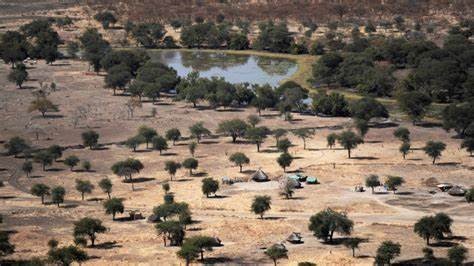By Charles K Mark
South Sudan Land Alliance (SSuLA) urges legislators in Central Equatoria State to revise land laws for better interpretation and understanding.
This follows the rejection of a clause in the South Sudan Land Policy by CES lawmakers, which stipulates that the land belongs to the people.
SSuLA, is a network of civil society organizations and community-based organizations on land,
Chairperson of the civil society, Dorothy Ambrose Drabuga has not only challenged the CES State Ministry of Land but all citizens to enrich themselves with the laws to avoid misfiring.
“In the actual sense, I think the people, South Sudan citizens, government officials and everybody, need to be given awareness because even the parliamentarians both at national and state levels, they are thinking that the land belongs to their communities simply because they don’t read,” she argued.
Article 170 of the Transitional Constitution of South Sudan as amended; and the Land Act of South Sudan 2009 says the land of South Sudan belongs to the people and its use regulated by the government.
Drabuga said many who placed reservations against the same clause are those who limit their understanding only to the clause without expanding it further.
“I think for some people when you say the land belongs to the people and you don’t explain further, they will then think settlement is by virtue of being a South Sudanese and that is all.”
“So they think anyone can come from anywhere and occupy any space without following procedures. And this is how land grabbing is promoted,” the Land Rights Activist continued.
She added that the controversial clause is accompanied by other laws that guide people and citizens of South Sudan on land acquisition and use.
“For example, you have to find out who is the chief in the area of your interest, the local chief. Then you can take some legal processes. But I think for the case of Central Equatorial State, they are worried because of course, a lot of scenarios have happened since the conflict in South Sudan,” The activist lamented.
Some regions in CES and the Greater Equatoria have been muchly affected by cattle invasions and land grabbing especially from some powerful individuals who have used the clause to misguide the process.
Activist Drabuga said besides the Land Policy, citizens are unaware of many other laws that protect their rights.
According to her, land is classified into Community, Private and government or public land.
She agreed that it is right for the government to regulate the land since its use can easily be mismanaged by individuals or communities.
“That’s why all the land, in fact, what is underneath when you talk of water, rivers, lakes, forest, mountains, and other features on land all belong to the government while on top, the surface of the earth belongs to the people,” she explained.
Lawmakers in Central Equatoria State Transitional Assembly led by Speaker Peter Wani Kulang, highlighted their concerns on the land act, specifically pointing to page 32 of the draft policy.
They expressed puzzlement at the rush to adopt the policy, particularly in light of the prevalent challenges faced by the nation.
The MPs dispute is that the phrase “land belongs to the people” was copied from the 1998 law enacted in the Sudan, declaring that all land in the Sudan belonged to Allah and giving the Islamic State as the representative of Allah on earth the power to dispose of land owned by non-Muslims.
Speaker Kulang said the difference between the 1998 land law of Sudan and the provision of Article 170 of the South Sudan transitional Constitution is replacing the name Allah with the people of South Sudan and non-Muslim, which may refer to certain ethnicities in the same selected regions of the country.
CES legislators argued that the country is struggling to recover from the devastating war of attrition that has destroyed its social fabric to levels never experienced before by the people of South Sudan not even at the time when Sudan was one.



